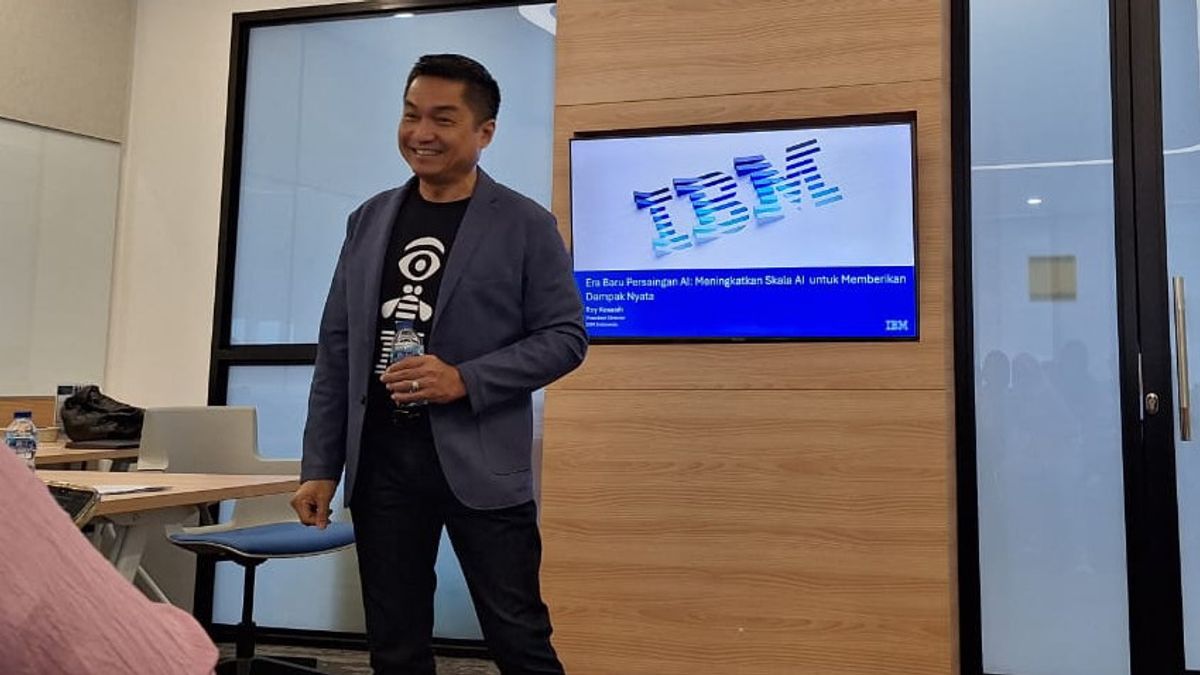JAKARTA - IBM has just launched a "APAC AI Outlook 2025" report revealing that companies in Asia-Pacific are now focusing on maximizing the impact of AI investment, switching from experiment to strategic implementation.
"This report highlights the potential for 2025, where AI's focus will lead to more strategic goals based on competitive advantages and ROI improvements," said Roy Kosasih, President Director of IBM Indonesia at the launch of APAC AI Outlook 2025 on Wednesday, December 4 at IBM office, Jakarta.
The following are five strategic trends that shape AI's future in Asia-Pacific, which are mentioned in this report:
AI-based revenue is the main focus: Organizations will adopt the "AI Strategic" approach by 2025 and prioritize projects based on business eligibility and impact. The challenge is how to scale AI through use cases that can maximize income opportunities and ROI.
"Success of course, the success of implementing AI, and how ROI is, will depend heavily on a strategic approach. How can it increase sales, or profit, or how it can reduce time, or increase efficiency," explained Roy.
Smaller and more specific open-source models appear as powerful alternatives to various AI applications: Roy also mentioned that models built for specific purposes will be increasingly in demand, including designs for local languages, regional context nuances, and simpler computational tasks.
SEE ALSO:
Companies adopt new tools to improve smooth AI visibility, governance and integration: Organizations in Asia-Pacific will further leverage open-source AI models to drive innovation and efficiency.
AI agents redefine the future of the world of work: Companies will further design an agentic workflow, supported by AI agents, to independently carry out tasks, collaborate with human workers, and create added value for businesses.
AI agents or AI Agentics, this is different. Because he will have intuition. He will have his own desire. So this humanoid factor has started to exist. Even though we are still trying to enter the elements that there are human centrics there," he added.
Human-centered innovation is pushing for the next phase of AI: Although productivity tools have become the main focus in AI adoption, AI's future lies in its use to improve human experience and capabilities.
The 'approachment to Human-Centric AI' will be a powerful tool for employees to expand their role, automate routine tasks, and open up new opportunities for creativity and innovation.
The English, Chinese, Japanese, Arabic, and French versions are automatically generated by the AI. So there may still be inaccuracies in translating, please always see Indonesian as our main language. (system supported by DigitalSiber.id)

















